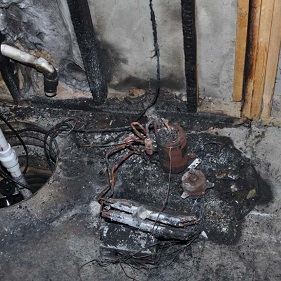CPSC Obtains Record Penalty Against Dehumidifier Manufacturer

The Consumer Product Safety Commission (CPSC) recently assessed a record $15.45 million civil penalty in a settlement with Gree Electronic Appliances Inc. and two affiliates to resolve numerous alleged violations of the Consumer Product Safety Act (CPSA). Gree is based in China and manufactured dehumidifiers sold under a variety of brand names such as Frigidaire, Kenmore, De’Longhi and GE. They were sold by some of the largest retailers in the U.S., including Wal-Mart, Sam’s Club, Sears, Kmart, Home Depot and Lowe’s. Not only is the $15.45 million penalty the largest ever imposed by the CPSC, it is almost four times the second largest penalty of $4.3 million, which was imposed in 2014. Although the settlement agreement with Gree made available to the public is thin on details about the conduct of Gree, analysis of the charges and penalty suggests that the CPSC obtained the maximum penalty available under the Consumer Products Safety Improvement Act of 2008 (CPSIA), and a separate statement issued by Commissioner Marietta S. Robinson confirms as much.
The CSPC alleged that dehumidifiers manufactured by Gree had a defect that caused them to overheat and catch fire, and that Gree had knowingly failed to report a defect and risk of serious injury to the CPCS within 24 hours as required by the CPSA. The CPSC further alleged that Gree knowingly made misrepresentations to Commission staff during the investigation and sold dehumidifiers with the UL safety certification mark, but knew those dehumidifiers did not meet UL safety standards.
The Commission’s settlement with Gree also is notable because Commissioner Joseph P. Mohorovic issued a separate statement expressing regret that insufficient facts about the actions and inactions of Gree have been released to the public. Commission Mohorovic noted that both parties to a settlement may want to keep the many details underlying the settlement confidential, but he believes the agency, regulated businesses and consumers are best served by providing “as much information as we can, not as little as we must.” Because the purpose of a civil penalty is to deter future harmful acts in addition to punishing the alleged violator, Commission Mohorovic explained that it is important that settlement agreements provide sufficient detail and context so that other companies can understand and learn from the example made of the violator. Commission Mohorovic expressed disappointment that the Commission “fail[ed] to make more instructive use of the first post-CPSIA maximum penalty [as] a teachable moment,” and hope that the Commission will provide more details in settlements in the future that may be instructive to the regulated community.
